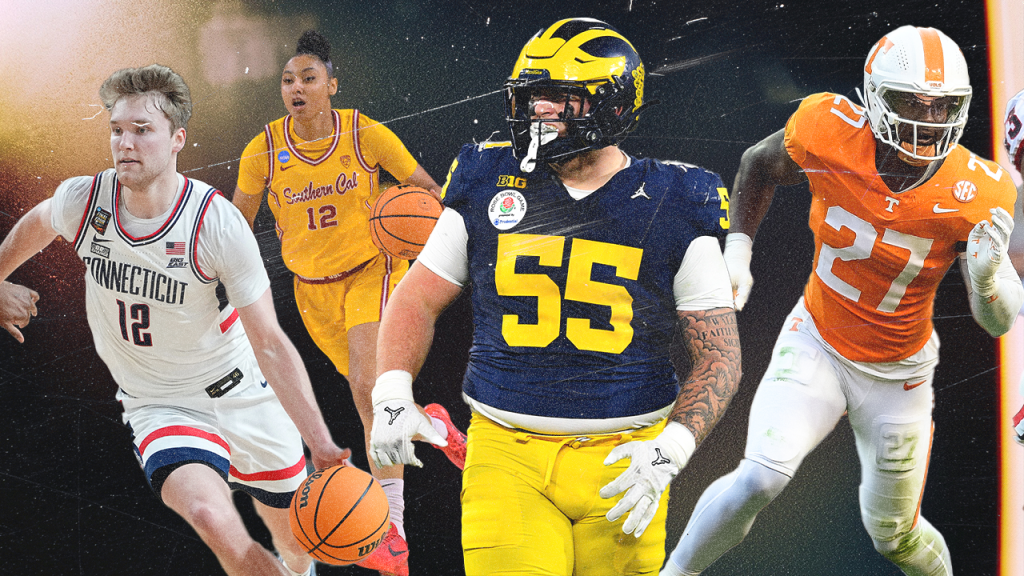The NCAA and its largest conference are currently negotiating a legal settlement that could usher in a new era in college sports. It's a time when athletes can reap more of the billions of dollars they generate.
The agreement could also be the catalyst for another big change: the start of institutional capital in college sports.
For the past several years, universities and private equity funds have been quietly discussing various investment scenarios to raise money (and profits) to further the professionalization of the NCAA's top-tier sports. The most publicized are the ongoing discussions between Florida State University and Sixth Street. sportico was first reported. The two sides have been in talks for more than a year, but nothing has been signed yet. One reason for the delay is uncertainty over antitrust litigation, according to people familiar with the talks. (Representatives from both parties declined to comment.)
Over the past few weeks, I've talked to many people in athletic departments, conference rooms, university boards, and private equity firms. Many expressions of the same sentiment: The deal is on hold. For now, stakeholders are waiting for the dominoes that have yet to fall. House vs. NCAA The settlement will likely be the largest.
The appeal of college sports as an investment is clear. Outside of the NFL, NCAA football is the largest commercial sport in the U.S., and its most valuable athletic component is the PE's It has many of the business characteristics that facilitate entry into professional teams. Perhaps most importantly, with all the upcoming changes within the NCAA, there is a belief that the Alabamas, Notre Dames, and Michigans of the world are about to make even more money.
It also means more spending on players, coaches and facilities. Schools and leagues seeking institutional funding are doing so because they know they will need it. how much are they needed? That's a much more difficult question to answer. And you may need more clarity before signing the contract.

In many college sports, there is a misunderstanding regarding the nature of discussions between universities and private equity funds. Yes, schools are seeking an infusion of funding, but I would like to see more private outcomes from these negotiations. credit Better value than private capital Good value. Private credit is structured similar to a loan, and in exchange for receiving equity in a company, the fund receives a guaranteed annual return. That's the setup sportico Gathered from early observations of conversations between Sixth Street and FSU. Private credit is likely easier to sell in public academia, and contracted media rights and football ticket sales, which are fairly stable sources of income for top-tier college sports programs, will thwart that. It will be.
Private credit is usually more expensive than traditional loans from banks, but it is often less restrictive and faster and easier to negotiate. Some of these funds tout operational expertise in addition to capital, perhaps a welcome addition to a sports sector understaffed in a new era of paid athletes and commercialization. That would be a suggestion. As an example, Sixth Street's portfolio includes Real Madrid, Barcelona, San Antonio Spurs, and Legends.
This is where the possibility of a legal settlement is considered. If private credit is indeed the future, it can help you figure out how much you need to borrow. Overestimating can leave schools burdened with large upfront payments and unnecessarily onerous terms on the back end.
There are also concerns on the other side. Fund administrators understand that the rapid changes occurring in the college sports world are likely a huge opportunity, but the current level of uncertainty may also be confusing the situation on their side.
Take Florida State, for example. The school is currently suing to leave the ACC, arguing that the league's withdrawal rules are unenforceable. If the school wins, it can leave the ACC for free, but if it loses, it will have to pay costs that Florida State's lawyers estimated in December could be as much as $572 million. So which conference will the Seminoles be in in 2026? Will it cost them nothing to move, or $500 million? And what will they have to share with the players? It's hard to structure a private credit deal without answers to these fundamental questions.

The answer may yet be found soon. According to a document shared around the ACC last week: House vs NCAA Settlement negotiations focus on a $2.77 billion contract to be paid over 10 years. Some of that cost would be paid by the NCAA itself, and the rest would be borne by schools through a reduction in NCAA distributions. Under the proposal, each team would be given the power to share revenue with student-athletes in the range of $20 million to $30 million annually, and the plaintiffs would lobby the NCAA to secure an antitrust exemption from Congress. I support the activities.
All of this should be treated with great skepticism. Sportico My colleague Michael McCann said earlier this week that the suspension was because legal settlements are usually done privately and more people are speaking publicly about the process. It also leaves the college sports community deeply divided over whether the deal's finances work for everyone, and it doesn't resolve other big financial issues facing college sports, such as whether athletes are employees. right.
However, a settlement would give schools financial clarity about their revenue shortfalls in the coming years, and at least a framework for what they need to give players in the near future. . And it would at least temporarily eliminate lawsuits hanging over the entire industry.
For better or worse, this is probably enough to get a new era of college sports fundraising off the ground. The barbarians are at the gate, just waiting for it to be unlocked.


